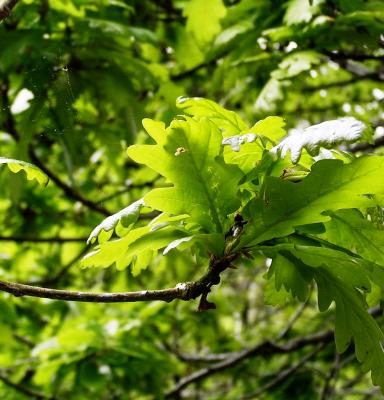
What do we mean by small and community woods?
Community woods can include any woods owned by a community or managed by a community under an agreement with a landowner. FSC allows national size thresholds to be set to determine what are ‘small’ woods for the purposes of lighter touch auditing. In the UK this threshold is set to 500 hectares, but that has more to do with a low perceived risk of non-conformance with standards than with what is a genuinely small wood in our context. Here we are thinking more of the thousands of privately owned or managed woods up to around 10 hectares or 25 acres in size.
Why should I be interested in FSC certification?
Being independently audited against FSC standards can give you assurance that the work you are doing will preserve all those things you value so much. It can also provide important assurance to others, such as landowners, the wider community, or potential funders.
You might even find that there are marketing or financial advantages if you are selling forest-based products. FSC certification might give you greater access to markets for wood products, and potentially to markets for non-wood forest products like fruits, nuts, mosses, foliage, saps – even venison.
Most importantly of all, though, certification helps to ensure that woods are managed in a way that meets a global vision of Forests For All, Forever. Whether or not you decide certification is right for you, we hope you will embrace that vision.
What does it mean in practice?
In the simplest terms, FSC Forest Management certification means two things: managing your woods according to a specific standard, and an independent third party checking that you are doing so.
At the global level, FSC’s vision of responsible forest management is set out in international Principles and Criteria. At the national level, these form the basis for the UK Woodland Assurance Standard (UKWAS), the standard you would have to meet to be certified.
External auditing is carried out by certification bodies which are independent of FSC.
To provide greater assurance about specific benefits, an FSC procedure now allows for the independent verification of claims about maintaining or enhancing ecosystem services under five headings: biodiversity conservation; carbon storage and sequestration; watershed services; soil conservation; and recreation services.
How can I get involved?
You can hold your own certificate or join a group scheme in which individual members are covered by a single group certificate. A group scheme manager will carry out internal audits to ensure standards are met, and group members will also be audited on a sample basis by a certification body. For the majority of small and community woods, we expect it would be most cost-effective to join a group scheme and recommend talking to more than one to find the best fit.
We are also working with a number of organisations to try to foster low-cost groups tailored specifically to the needs of small woodlands owners, woodlot licence holders, and community woodland groups. If you work with many like-minded owners or managers, you might even consider setting up your own group.
Even if you don’t think FSC certification is right for you, we would encourage you to embrace FSC’s Principles and Criteria and to try to manage your woods in line with UKWAS.
FSC certification for small and community woodlands: What, why and how?
This recorded webinar looks at the potential gains from certification and explores what it would mean on a practical level for community and small woodlands. The webinar includes speakers from FSC UK, Llais y Goedwig, Scottish Woodlotters and the Small Woods Association, as well as managers of existing certification group schemes.
